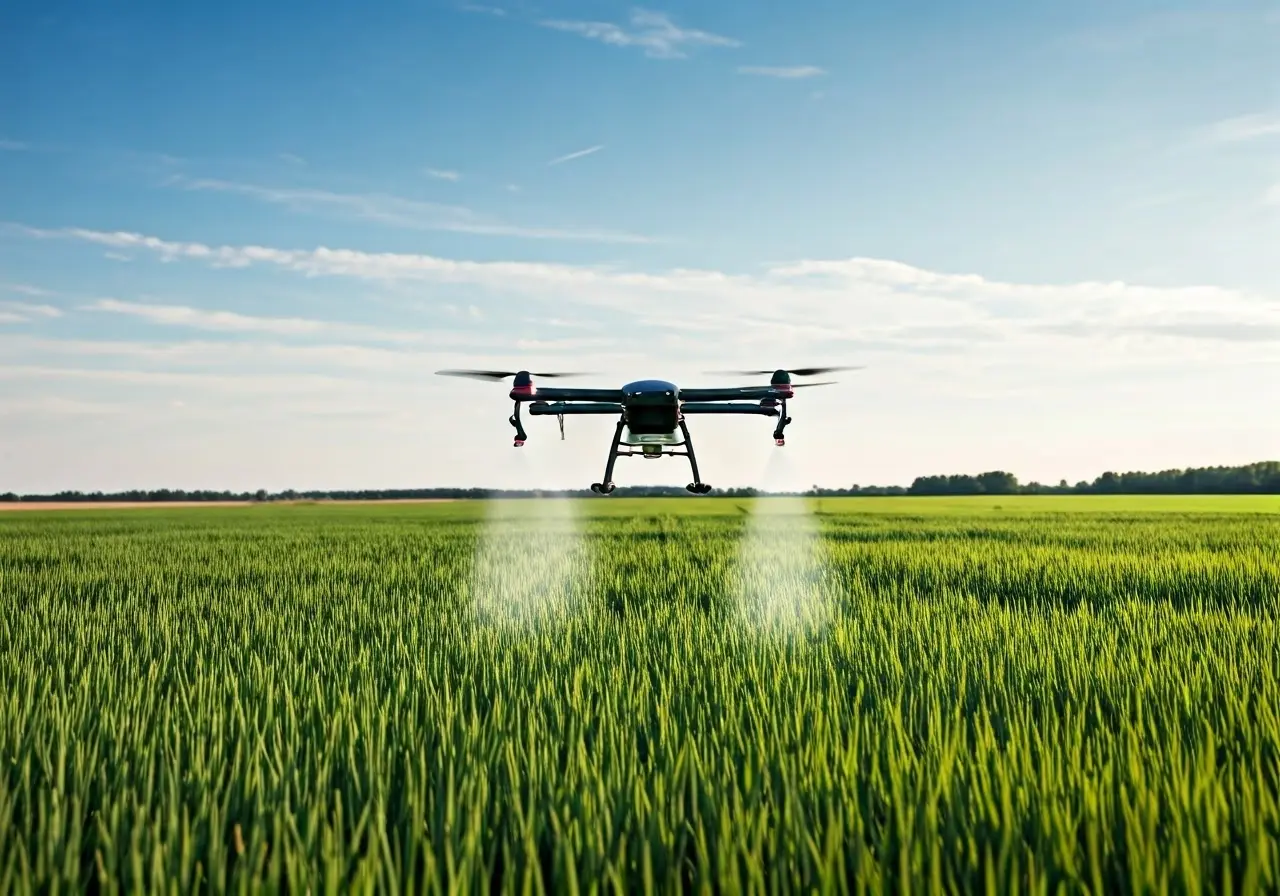In today’s rapidly evolving agricultural landscape, innovative technologies are transforming the way farmers manage their crops. One such breakthrough is the usage of pesticide spraying drones. These drones offer a multitude of benefits that not only enhance crop yield but also ensure sustainability and efficiency. Dive into the top reasons why adopting pesticide spraying drones could be your next smart farming move.
1. Precision Application for Optimal Coverage
Pesticide spraying drones are designed to deliver precise applications, ensuring even coverage across your fields. This precision helps in minimizing waste and maximizing crop protection, ultimately leading to improved yields. With advanced technology like artificial intelligence in agriculture, drones can be programmed for spot treatment, eliminating the need for blanket pesticide applications AI in Agriculture and Farming.
In addition to precision, these drones are equipped with sensors that can collect real-time data about the crop health and pest infestations. This invaluable information allows farmers to identify areas that require attention, ensuring that pesticides are applied only where needed. Utilizing drone trailers as mobile bases further enhances operational efficiency, allowing quick reaction to crop health issues Why Drone Trailers are Essential for Modern Farming.
2. Time Efficiency and Quick Deployment
Drones can cover large areas much faster than traditional methods, allowing for timely pest management. This efficiency can be critical during peak growing seasons when every day matters. Unlike manual labor, drones require less time to deploy and get the job done efficiently. Moreover, as shown through successful vineyard applications, precision technology cuts the pesticide requirement by 30%, showcasing significant savings in time and resources.
3. Reduced Human Exposure to Chemicals
By using drones, farmers and workers are kept at a safe distance from hazardous chemicals, promoting a healthier working environment and reducing health risks. By keeping people safer, drones streamline operations making it easier to focus manpower on tasks that require more personalized expertise, reducing inefficiencies caused by human fatigue.
4. Cost Savings with Efficient Resource Use
Reducing the overuse of pesticides not only saves on chemical costs but also protects the environment. Drones help in optimizing the amount needed, which leads to significant cost savings over time. The adoption of drone technology represents a step towards reducing environmental impact by using resources more effectively and achieving sustainable agriculture practices.
5. Access to Hard-to-Reach Areas
Drones easily navigate challenging terrains and hard-to-reach areas, ensuring that every part of your field receives the necessary treatment. This technology eradicates previous concerns of crop damage or untreatable areas, ensuring uniform pesticide distribution and optimized crop protection.
Especially in expansive or irregular terrains, drones are invaluable. They overcome limitations posed by ground-based machinery, reaching corners that tractors and human workers cannot, while avoiding soil compaction. This benefit extends to being able to work in variable weather conditions, massively broadening their usability.
6. Data Collection for Informed Decision Making
Pesticide spraying drones can be equipped with sensors and cameras that collect valuable data. This information aids farmers in making informed decisions about crop management and pest control strategies. Integrating with AI enables drones to analyze collected data, identifying patterns that help mitigate risks and maximize resource allocation AI in smart Greenhouses.
7. Supporting Sustainable Farming Practices
By optimizing pesticide usage and reducing runoffs, drones support sustainable agriculture practices, promoting healthier ecosystems while ensuring bountiful yields. This targeted action helps conserve water and protect non-target species, contributing to higher biodiversity Environmental Benefits of Using Pesticide Spraying Drones in Sustainable Farming.
Moreover, by minimizing the use of heavy machinery, drones significantly reduce carbon footprints. They operate on electrical systems which drastically reduce emissions compared to traditional diesel-fueled machinery. This transition to clean, efficient pest control demonstrates an ongoing commitment to sustainable farming initiatives, crucial for environmental conservation.



